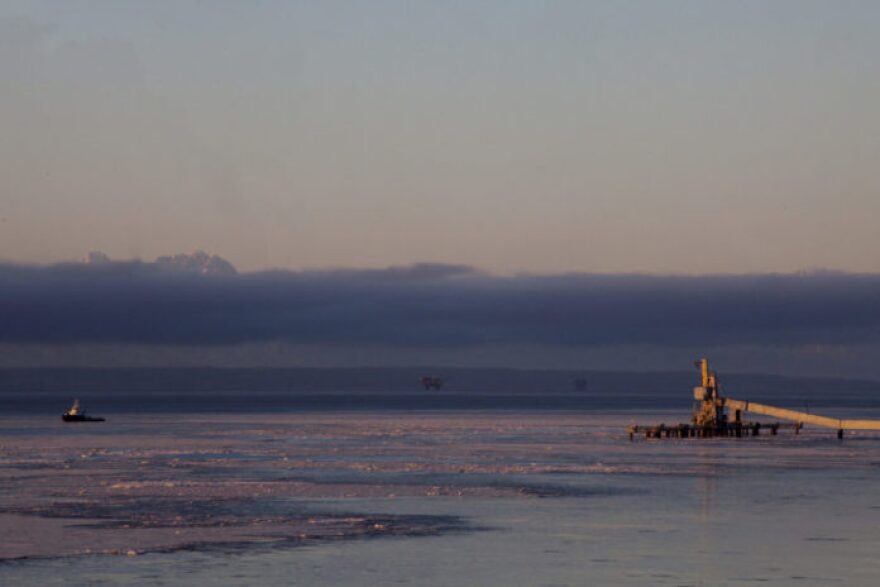Oil and gas leasing on federal lands and waters is on pause. That includes a sale in Alaska’s Cook Inlet that was originally slated for later this year and is now suspended indefinitely.
At the same time, the federal government is reviewing its energy program and gathering input from industry experts, environmental advocates and tribal leaders across the country. Several representatives from those groups, including two from Alaska, weighed in on the program at an Interior Department forum Thursday.
Nicole Borromeo, executive vice president and general counsel of the Alaska Federation of Natives, was one of the experts who spoke at the forum. She said that while Alaska Native communities are on the front lines of climate change, the federation also acknowledges the oil and gas industry is a boon for the Alaska Native workers it employs.
“Alaska Natives do not operate in an either/or space when it comes to the nation's energy policy," Borromeo said. "We favor both traditional and emerging forms because a combination of both best serves our state and our people."
In Alaska, the National Petroleum Reserve and a large swath of Cook Inlet are both part of the federal oil and gas program.
Earlier this year, the federal government halted an upcoming lease sale in the inlet in response to an executive order from the Biden Administration, geared toward addressing climate change. Alaska and 12 other states are suing the Biden administration for that decision, while some environmental advocates are petitioning the government to block offshore leasing for five years.
Interior Secretary Deb Haaland said the government needs to take a long view at its management of public lands and waters.
“The pause on new oil and gas lease sales give us space to look at the federal fossil fuel programs that haven't been meaningfully examined or modernized in decades," she said.
Michael LeVine is a Juneau-based Arctic Fellow with Ocean Conservancy, an environmental advocacy nonprofit. He said the pause was a good first step but said further reforms and legislation are needed.
“If we could make one change in the legislation about offshore oil and gas, it would be to prioritize the health and viability of ocean ecosystems, rather than the way it’s stated now, a priority for extraction," LeVine said.
He said offshore leasing in Alaska jeopardizes ocean ecosystems and the people who rely on them, including coastal communities and members of the fishing industry.
Representatives from trade unions and oil and gas industry associations said cutting federal oil and gas production would be bad for jobs.
Borromeo said AFN is also concerned about maintaining energy jobs for Alaska Native people. She said the department should actively consult Native communities in its decision-making on energy policy.
“Let us show you our lands," she said. "Don't necessarily just rely on what private industry or environmental groups are saying. We want to be the ones to take you and to show you.”
She encouraged Interior Department officials to visit Alaska to see it for themselves.
“That means you’re going to have to stay probably a week or so," she said. "Because it’s going to take you a day to get here, a day to adjust up in Anchorage, and then we’ve gotta get out to the bush. We need to travel.”
The Interior Department said it will complete an interim report on its federal conventional energy programs this summer. It’s soliciting additional feedback until April 15.





